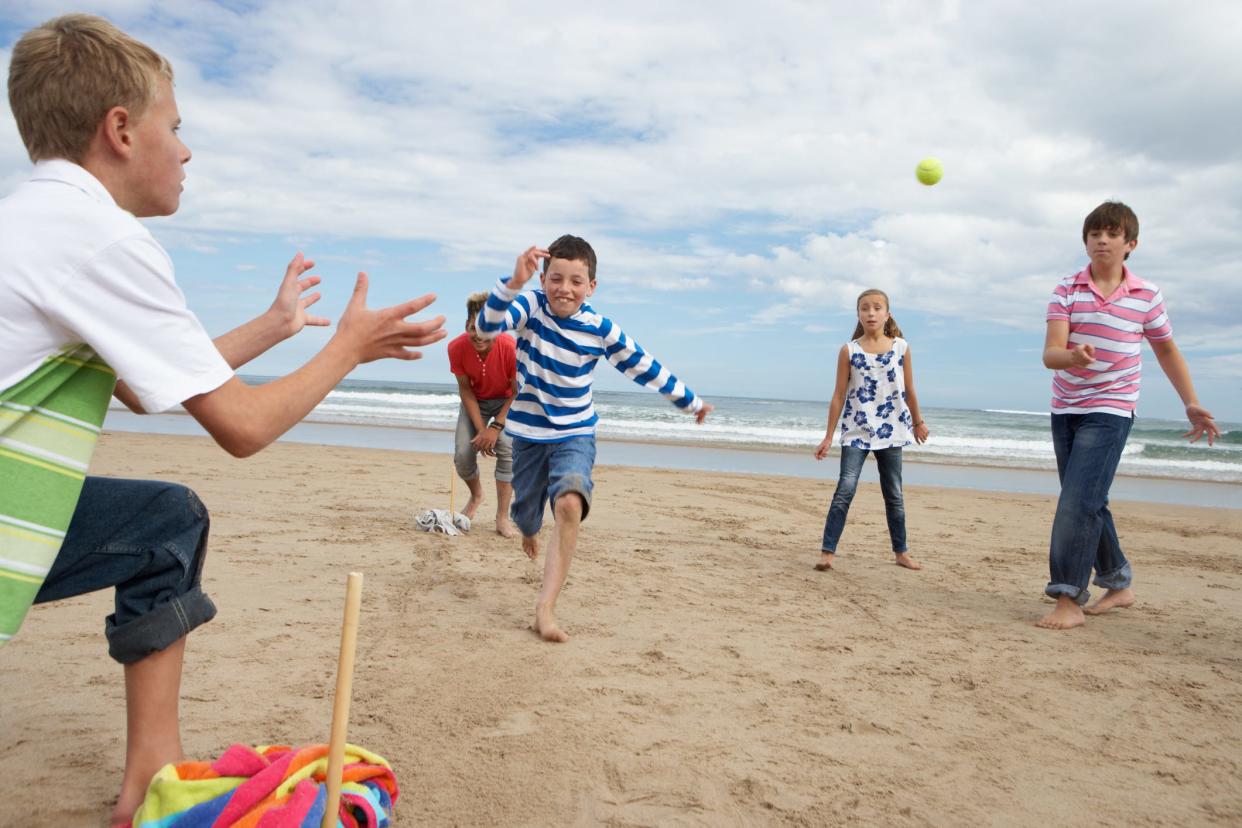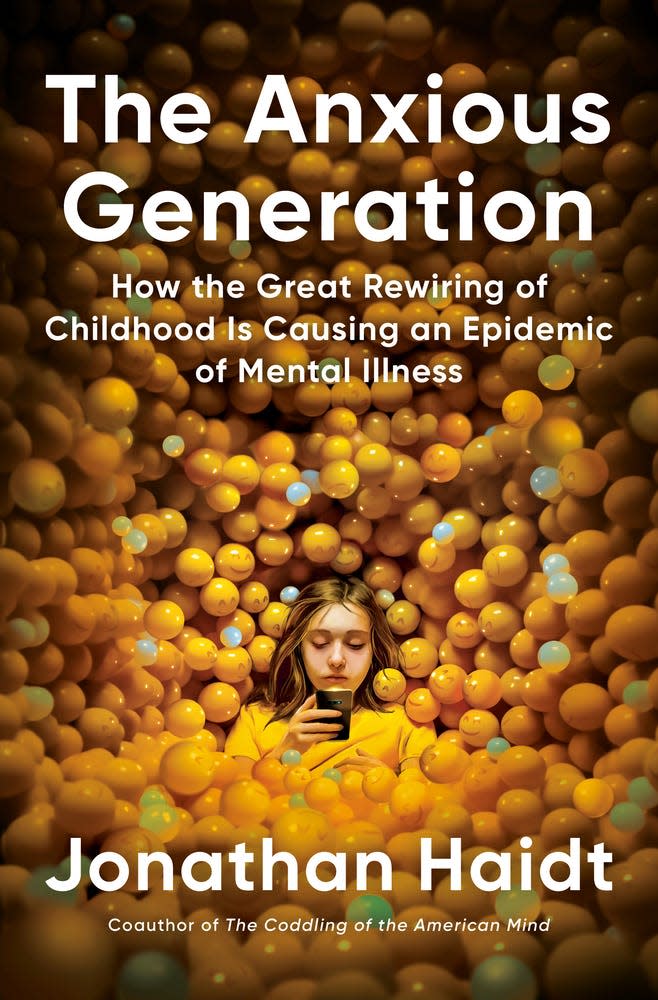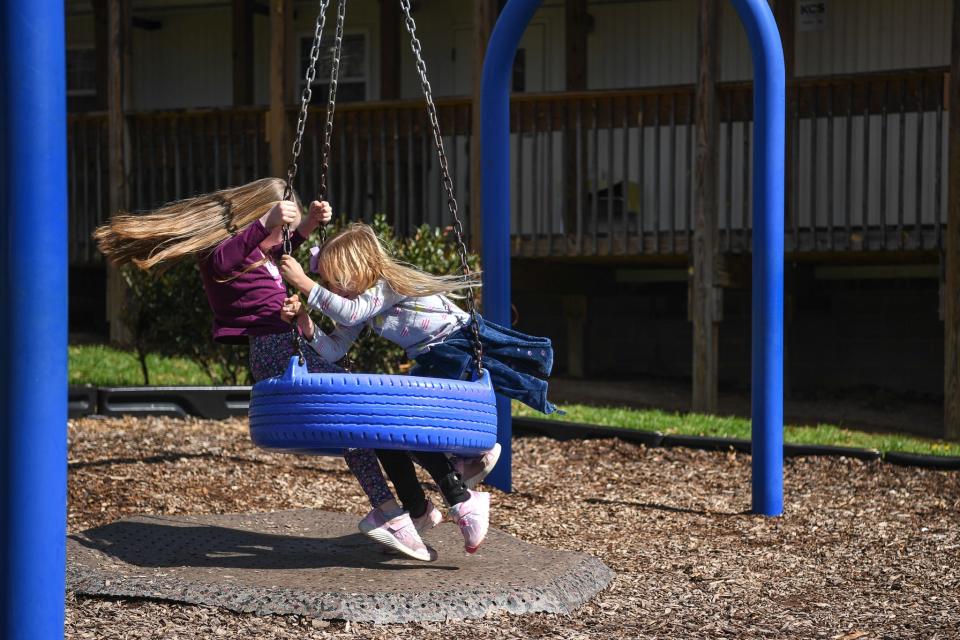New book urges parents to help kids reclaim a childhood full of play — and less screen time

We’ve all seen the headlines reporting that Gen Z youngsters are dealing with myriad unique mental health challenges that no previous generations have.
And while obviously not every member — or even the majority — of Gen Z has suffered the worst of the effects, a significant portion have.
And that impacts all of us.
In his new book “The Anxious Generation: How the Great Rewiring of Childhood is Causing an Epidemic of Mental Illness,” New York Times best-selling author and New York University social psychologist Jonathan Haidt explores how, when and why this started happening — and, perhaps more importantly, what collective actions society can take to mitigate it.

As Haidt wrote in The Atlantic last month ahead of the publication of The Anxious Generation, “something went suddenly and horribly wrong for adolescents in the early 2010s … Rates of depression and anxiety in the United States — fairly stable in the 2000s — rose by more than 50 percent in many studies from 2010 to 2019. The suicide rate rose 48 percent for adolescents ages 10 to 19. For girls ages 10 to 14, it rose 131 percent.”

There were also increases in self-harm and feelings of loneliness and friendlessness while there were concurrent decreases in reading and math levels, and lower standardized test scores.
Haidt also noted that this wasn’t a uniquely American phenomenon: “Similar patterns emerged around the same time in Canada, the U.K., Australia, New Zealand, the Nordic countries and beyond.”
Why children NEED to play
In "The Anxious Generation," Haidt explains that all mammals play in their own ways during childhood, and he makes a compelling case that the “play-based childhood” began to decline in the 1980s and that “it was finally wiped out by the arrival of the ‘phone-based childhood’ in the early 2010s.”
He also explains how there are “more than a dozen mechanisms by which the ‘great rewiring of childhood’ has interfered with children’s social and neurological development.”

This has led to everything from sleep deprivation, fragmented attention and loneliness to perfectionism, unhealthy social comparison and addiction.
He also argues that, as you might expect, exposure to social media damages girls more than boys.
That said, he also discusses why boys have been withdrawing from the real world into the virtual world — which, in many cases, has led to “disastrous consequences for themselves, their families, and their societies.”
The 'four new norms' to improve children's mental health
Haidt is so concerned about the mental-health trajectory facing Gen Z and future generations who may experience phone-based childhoods that he started an initiative whose mission is “to motivate and empower teens, parents, educators, policymakers, and tech industry leaders to act collectively to free children and adolescents from a childhood spent largely alone on screens, and instead promote independence, free play, and responsibility in the real world.”
To that end he has listed four actionable ways in which we can make his mission a reality.
Arguably the most important component of all four is that they’ll require collective action — on both a micro and macro scale.
He calls these actions “the four new norms,” and they are as follows:
1. No smartphones before high school
Parents should delay children’s entry into round-the-clock internet access by giving only basic phones (phones with limited apps and no internet browser) before ninth grade (roughly age 14).
2. No social media before age 16
Let kids get through the most vulnerable period of brain development before connecting them to a firehose of social comparison and algorithmically chosen influencers.
(In March, Florida Gov. Ron DeSantis signed into law a bill called HB 3, which bans children under the age 14 from having their own social media accounts. Other states have signed, or tried to sign, similar bills into law. Experts believe there will be lawsuits challenging these kinds of laws. In Florida, for those ages 14 and 15, they'll be allowed to have social media accounts only with parental consent. Children will also be legally restricted from visiting pornographic websites as the law requires age verification for those who visit such sites. Should HB 3 survive expected legal challenges, it will take effect Jan. 1, 2025.)
3. Phone-free schools
In all schools from elementary through high school, students should store their phones, smartwatches, and any other personal devices that can send or receive texts in phone lockers or locked pouches during the school day to free up their attention.
4. More independence, free play and responsibility in the real world
By giving children the freedom to assess risk and make mistakes,they are far more likely to naturally develop social skills, overcome anxiety, and become self-governing young adults.
To create these new norms, Haidt suggests parents text and/or email other parents in their kids’ immediate circle so they can coordinate with each other “because there’s strength in numbers.”
He also suggests that giving kids more age-appropriate freedoms will benefit both parents and youngsters.
As he writes on anxiousgeneration.com: “Kids develop social skills and overcome anxiety naturally through independence and unsupervised play. This means letting them do more activities and errands on their own, unsupervised, in the real world. From second or third grade on, kids can walk to school (ideally in a group, which is more fun), or they can walk or ride a bicycle to a nearby store to buy a few groceries. Teens can grab pizza with friends or get part-time jobs. Schools can help parents to foster this independence by assigning The Let Grow Experience (which gets kids doing new things on their own) and starting a Play Club for students in K-8: keeping the playground open before or after school as a no-phone-zone for mixed age free play with minimal adult intervention.”
Haidt wants to help kids and parents reclaim some of the most vital aspects of childhood so that they too will have some of the fun memories he has of his own childhood.
“I remember the thrill of riding skateboards, with my best friend, down the middle of a major street in our hometown, but late at night when there were few cars around and we felt like we were doing something vaguely wrong and very exciting,” he explained. “I want kids today to be able to have such thrills, such feelings, such shared adventures with a friend.”
This article originally appeared on Palm Beach Post: Author argues improving mental health requires unplugging childhood

